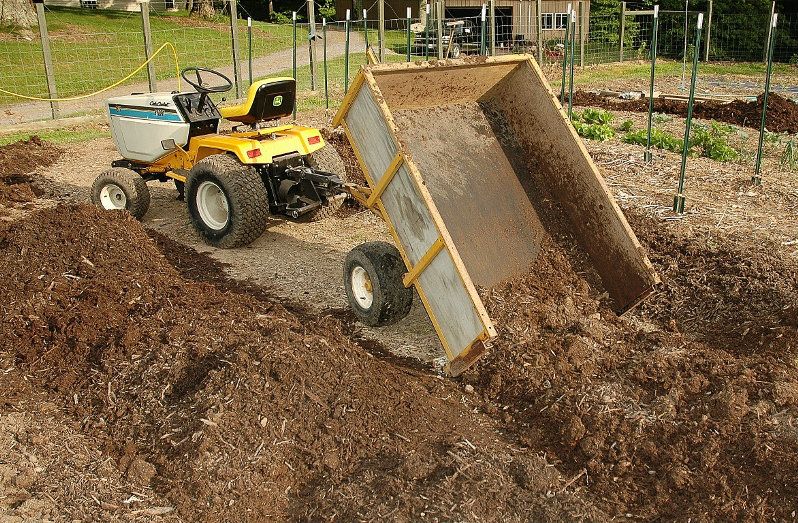From what I have read, fungi is everywhere. I just read a thread about beginning a wild yeast sourdough with the fungi that is on the purchased wheat berries.
I have heard that even though you can start with an obtained source for sourdough starter, eventually, local fungi will take over the starter, that makes sense, to me. The local fungi are best suited to the local conditions.Therefore the local fungi should be able to "take over" the wild yeast sourdough starter that you nurture.
If your starter is gonna end up there, why not start with that??
So, my question is, "Is there a best source for the local fungi?"
I cultivate a LARGE fungi crop in my garden. I have added many tons of compost to the garden.

The pleasant smell when soil is turned over is due to fungi.
Is this a good source of fungi for a sourdough starter? Is there a way to "move" the fungi from the garden to a starter??
If not the garden fungi, where else should I pursue to obtain "my" local fungi??
It is wild yeast and lactobacteria that are present in and on the wheat grown by farmers. This is all you need to create a good viable wild yeast starter. The bread you make will be made from flours from such berries so surely the best source of wild yeasts is that already present from that same flour source.
is the flour you feed it. That's not from your local area, usually, but from hundreds or thousands of miles away. Local water municipal water is treated, so that wouldn't be a source of additional microbes (unless you are using untreated well water, etc.). If a starter changes, most likely it would be from the flour, unless you are adding other things to it.
.
Flour is blended at the mill from different sources. So different lots of the same brand of flour bought at different times could be from a variety of areas. Every time you open a new bag of flour and feed your starter, you may be introducing microbes from a different area. So I don't see how the "local" environment influences a starter very much.
Hmmmmm, interesting that the wheat berries, or water would be the source!!
We use a deep well as our water source, and try to do all cooking from home ground wheat,,,
So, our wheat berries appear to be our best source of the fungi. I may select one bag of berries, and use it exclusively in starter (we keep a half dozen 25 pound bags of berries)
I wonder if one particular type of berry would be the best "food source" for starter, such as
hard versus soft??
spring versus winter??
There seems to be a consensus that the most suitable grain is rye for starting a starter if by suitable you mean, least likely to fail to create a stable culture that can be used as a starter.
People have great success using simply unbleached white flour and non-chlorinated water to make their starters.
If you are going to keep a 100% whole wheat freshly milled starter, I think you just need to be prepared to feed it a bit more frequently, or to feed it more consistently than one who keeps a starter using unbleached all purpose flour. I could be wrong about that. I only tried feeding my starter home-milled flour for a few weeks before I stopped, mostly because it did not look as healthy as the all purpose flour starter I was maintaining. (However, that could have been because I did not feed it as often. I did not really conduct a good experiment)
All yeast are fungi but not all fungi are yeast.
1) Yes, yeast are a fungus. But there are many types of fungi out there. Those that come from the soil are not likely to be yeast that thrive on flour of any kind. In fact culturing yeast from the soil is likely to give you something that could be quite toxic. Not all fungi are as edible as those that we use baking.
2) It's true that over time the yeast in your starter will be replaced. But it's a fallacy to say that they will be replaced by "local" yeast. By far the greatest contributor of yeast to your starter are the yeast that grow on the outside of the wheat, and other grains, that are used to make the flour that you feed to your starter. "Will be replaced by local yeast" should really be "will be replaced by the yeast in whatever flour I use". And it does not take long. A few feedings will do it. So "your local fungi" consist of the yeast in your flour. So in the end "local" doesn't really take on any meaning.
3) As far as starting with a commercial starter... Sure, that's one way. But it only takes 2-3 weeks to create your own starter, essentially for free, and have it ready for baking. The methods for doing so are numerous, and you'll find plenty of great guidance here on this site. I've only been baking for a couple of years, but I've had great luck creating starters simply from water, flour, and a bit of time. Some advocate adding acidic juice, such as pineapple, to speed the process along, but I've never found it to be necessary. The only thing for certain is that given some water and flour, and a hospitable environment, you'll eventually end up with fermenting yeast.
Good luck, and let us know how your baking adventure goes!